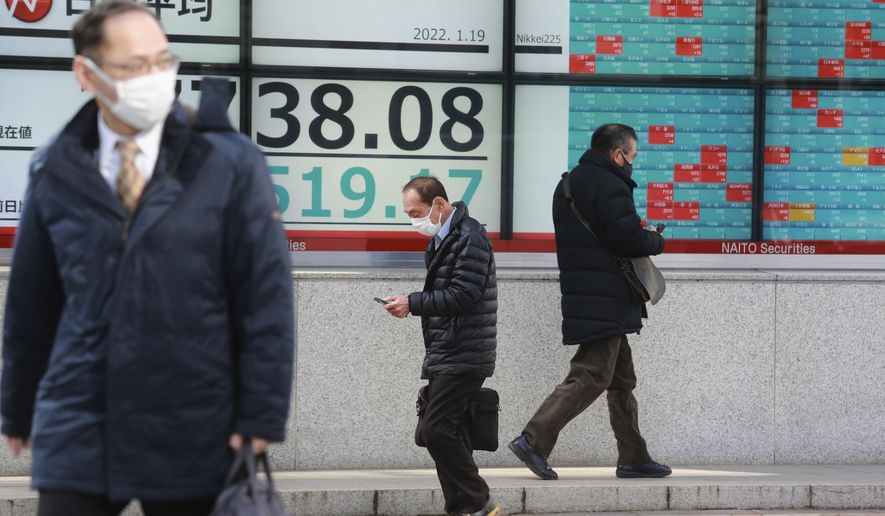Stocks turned mixed in late morning trading on Wall Street as investors review the latest corporate earnings and prepare for higher interest rates.
The S&P 500 fell 0.1% as of 11:52 a.m. Eastern. The Dow Jones Industrial Average fell 13 points, or less than 0.1%, to 35,357 and the Nasdaq fell 0.3%.
Stocks have been slipping overall in January as investors try to gauge how rising inflation will impact businesses and consumers, along with the Federal Reserve’s next move on interest rate policy.
The major indexes gave up early gains, with technology stocks again giving direction to the broader market. The sector has triggered much of the choppiness in the market as investors shift money in expectation of rising interest rates. Higher rates make shares in high-flying tech companies and other expensive growth stocks relatively less attractive.
Apple fell 1.3% and chipmaker Nvidia rose 2.5%.
“We’ve seen some givebacks from the returns we got last year,” said Megan Horneman, director of portfolio strategy at Verdence Capital Advisors. “What we’re seeing is that the market is resetting now.”
A mix of travel-related companies and automakers also fell. Ford slumped 6.5% following news that it is recalling about 200,000 cars in the U.S. to fix a problem that can stop the brake lights from turning off.
Healthcare companies and makers of household goods and consumer products gained ground.
Bond yields fell. The yield on the 10-year Treasury fell to 1.84% from 1.87% late Tuesday.
Investors are busy reviewing the latest round of corporate earnings. Health insurer UnitedHealth Group rose 1.5% after reporting encouraging financial results. Bank of America rose 1.4% after reporting a jump in profits that beat analysts’ forecasts.
Household and consumer goods company Procter & Gamble rose 4.4% after also reporting strong financial results. The maker of Dawn dish detergent and other products reported strong results as it passed along higher costs to consumers.
Wall Street is closely watching the latest round of results to gauge whether inflation is cutting into profit margins for companies and to see whether consumers are accepting the higher prices without cutting back on spending. Demand for goods has outpaced companies’ capacity to make and supply products, which has caused supply chain problems and raised raw materials costs.
Economists expect inflation to remain high until those supply chain issues are solved and consumer demand is tempered. Meanwhile, the Federal Reserve is speeding up its withdrawal of support for markets and the economy. The central bank is likely to raise interest rates earlier and more often than had been expected to fight rising inflation.
As of late Tuesday, investors were pricing in a better than 86% probability that the Fed will raise short-term rates at its meeting of policymakers in March. A month ago, they saw less than a 47% chance of that, according to CME Group.




Please read our comment policy before commenting.